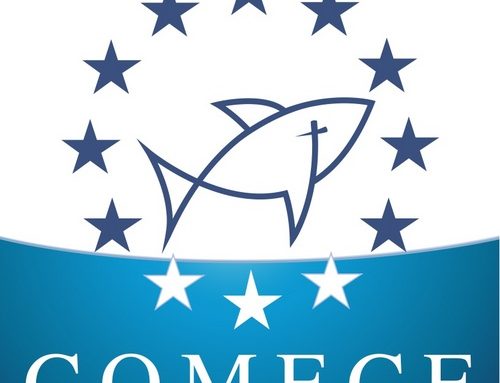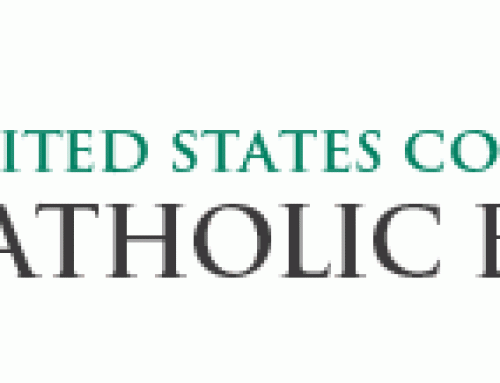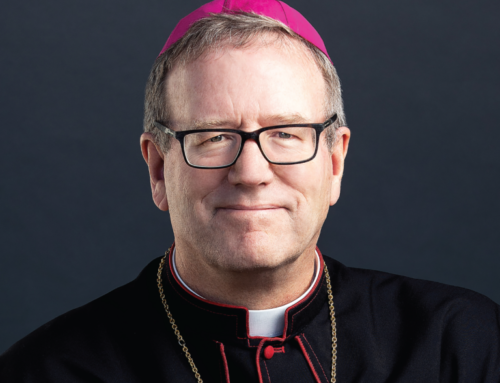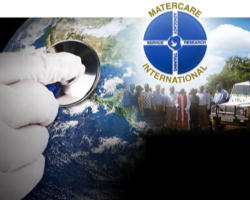Abortion cannot be legally permitted due to the presence of mental disorders in the mother. In such cases, recognized and effective treatment methods should be used,” reads the Position of the Expert Team of the Polish Bishops Conference on Bioethics on the admissibility of abortion based on the premise of mental health.
The members of the Team of Experts strongly oppose the attempt to create a new interpretation of the existing law “aimed at broadening the criteria permitting the legal deprivation of life of an unborn child on psychiatric grounds, also because, in practice, this would mean renewed legalization of abortion on request, in addition through unconstitutional, extra-statutory manipulation.” They add that such an action contradicts Article 39 of the Code of Medical Ethics: “When taking medical action in a pregnant woman, the doctor is at the same time responsible for the health and life of her child. Therefore, the doctor must endeavor to preserve the health and life of the child also before birth”.
The Team members emphasize in the Position that “abortion cannot be legally permitted due to the presence of a mental disorder in the mother. In such cases, recognized and effective treatment methods should be used”. In doing so, they invoke the value of human life, regardless of its stage of development or state of health. “This is the position taken by every person with a properly formed conscience. It is also reflected in legal norms enacted in defense of respect for the fundamental rights of every human being, including the child, from the moment of conception,” the Position reads.
The Team of Experts of the Polish Bishops’ Conference on Bioethics points out that the above premises are also referred to in the teaching of the Catholic Church, confirmed by numerous papal declarations.
Press Office of the Polish Bishops’ Conference
The full text of the Position follows:
Position of the Expert Team of the Polish Bishops Conference on Bioethics
on the admissibility of abortion based on the premise of mental health
- Recently, in the public space, one can more and more often encounter opinions that a threat to the mental health of a pregnant woman is a premise justifying the legality of abortion. Given the increasing discussion on this subject, the Experts Team on Bioethics of the Polish Bishops’ Conference has taken note of these opinions with great care and concern. The Team members, therefore, recall the value of every human life and the fundamental rights of the human being, irrespective of their stage of development. They also firmly emphasize that the necessary protection and treatment must always be extended to the mother and the unborn child.
- There is no doubt that during pregnancy, there are situations of deterioration in the woman’s mental health. For example, these issues may stem from an unfavorable prenatal diagnosis and the child’s development prognosis. For some women, other difficulties may lead to a mental health crisis during pregnancy. In particular, there may be fears concerning, for example, changes in one’s life (plans, way of functioning, finances, living, professional conditions, the burden of responsibilities, entering a new role as a parent, single parent, or parent of a sick/disabled child, etc.), rejection by the father of the child, loneliness, feeling unsupported by relatives, social organizations or the state, with no personal prospects and no prospects for the child. There may be fears about the future, often paralyzing, that feel beyond strength and capacity.
- In such situations, the Church, the state, and NGOs offer comprehensive support to the woman. Depending on the situation, mothers can benefit from many different aid forms, such as single mother’s homes, adoption centers, perinatal hospices, and life windows. These institutions provide support from specialists in various fields, such as psychiatry, medicine, psychology, and psychotherapy. At first glance, abortion may appear to be the only way to alleviate the suffering experienced, but in reality, it is not. The Catholic Church is invariably on the side of a human being because it is a community that particularly protects the most vulnerable and threatened with loss of life. Full of empathetic understanding, it offers a helping hand to those suffering, feeling powerless and helpless, who need spiritual and emotional support, as well as the provision of necessities of life.
- Mental health crisis affects more and more people: it concerns women, men, and children, regardless of whether they are believers or not, what their financial and social status is, and what their profession is. The restoration of mental health takes place with the help of therapeutic methods, in particular, drug therapy, psychotherapy, and psychoeducation. These are the therapeutic standards. Abortion is not among the therapeutic techniques used for treatment. The killing of a child cannot be considered a means of restoring a woman’s health. Such an act does not fall within therapeutic standards. While it is a fact that deterioration of a woman’s mental health occurs during pregnancy, the mere fact of being pregnant is neither a necessary nor a sufficient stressor leading to mental disorders. What is crucial here are the circumstances surrounding the pregnancy, particularly the level of support the woman feels from her environment, society, the state, those closest to her, her sense of security regarding the future, or her sense of emotional and maintenance stability. In addition, the phrase “a threat to the mother’s mental health” is unclear. Indeed, it allows for various interpretations with a considerable risk of abuse. These interpretations may depend on subjective feelings and be used and based on a specific concept of quality of life.
- Numerous studies also confirm that abortion often results in severe mental health complications (post-abortion syndrome) accompanying the mother even for the rest of her life. Often, when life conditions and circumstances change, and the woman receives adequate support, her assessment of the situation also changes, and she begins to see other solutions to her crisis. Abortion, on the other hand, is an irreversible action.
- In a situation where the health and life of the expectant mother is at risk, it is always necessary to extend the required protection and treatment to the two patients – both the mother and her unborn child – in the knowledge that the life and health of the mother are fundamental conditions for the life and proper development of the child.
- In a situation where it is impossible to save both, measures to protect the mother are permissible, even if their side effect is the child’s death, anticipated but unwanted and unavoidable. In such a case, the mother’s choice to save her life is ethically justifiable. However, whenever possible, she should be left with the option of performing a heroic act, which would be to sacrifice her own life to save the child’s life if it had a chance of survival.
- The members of the Experts Team strongly oppose the attempt to create a new interpretation of the existing law aimed at broadening the criteria allowing the legal deprivation of life of an unborn child on psychiatric grounds, also because, in practice, this would mean the re-legalization of abortion on request, in addition through unconstitutional, extra-statutory manipulation. Such an action contradicts Article 39 of the Code of Medical Ethics, which states, “When taking medical action on a pregnant woman, the doctor is at the same time responsible for the health and life of her child. Therefore, the doctor must endeavor to preserve the health and life of the child also before birth”. It would also put psychiatrists in the position of deciding about the unborn child’s death.
- Abortion cannot be legally permitted due to a mental disorder in the mother. Recognized and effective treatments must be used in such cases. Although the ethical permissibility of the abortion procedure has already been the subject of numerous statements by the Experts Team, we refer again to the value of human life, regardless of its stage of development or state of health. It is the attitude every human being with a properly formed conscience takes. It is also reflected in the legal norms enacted to defend respect for the fundamental rights of every human being, including the child from conception. These premises also refer to the Catholic Church’s teaching, with the pronouncements of the Popes repeatedly confirmed, which the Experts Team on Bioethics of the Polish Bishops Conference follows.
- This document draws attention to the deterioration of women’s mental state during pregnancy. After all, there are situations in which a mentally ill woman becomes pregnant due to abuse by an irresponsible man. She is usually incapable of undertaking parental responsibilities. However, the unborn child in her womb still retains human dignity and rights. It, therefore, requires comprehensive care both before and after birth. No form of termination of pregnancy is justifiable here. In such a case, the Catholic Church advocates that the pregnant woman should be given special care before the birth, ensured decent conditions for the delivery of the child, and that, if she is unable to bring up the child, she should then be assisted by social welfare centers, family foster homes or, for example, facilities run by women religious. Such a solution does not exclude valuable contact between the child and its biological mother. At the same time, it is a testimony to the moral maturity of society.
On behalf of the Experts Team on Bioethics of the Polish Bishops Conference
Bishop Józef Wróbel SCJ
Translation: Sr. Ewa Dobrzelecka / Office for Foreign Communication of the Polish Bishops Conference









